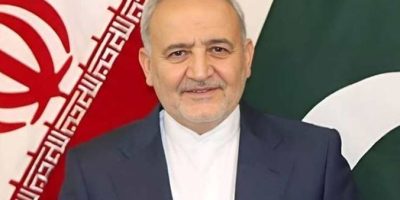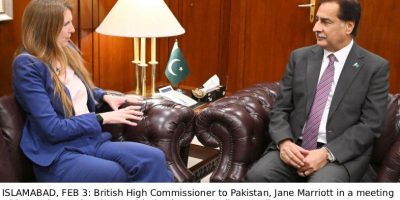IMF lauds Pakistan’s decisive response to COVID-19

ISLAMABAD, APR 20 (DNA) – Maria Teresa Daban Sanchez, Resident Representative of International Monetary Funds (IMF) in Pakistan, has said that the performance of Pakistan’s economy prior to the emergence of Covid-19 and its devastating impacts, had been quite satisfactory.
She said that the IMF was quite happy the way Pakistan was implementing different policies to achieve fiscal consolidation and macroeconomic stability and would continue to provide its support to the country to face the socio-economic challenges posed by COVID19.
The Resident Representative of the IMF said this while speaking at online policy dialogue titled ‘IMF support to Pakistan under RFI, Existing EFF program, & Debt Rescheduling’ organized by the Sustainable Development Policy Institute (SDPI) here on Monday.
Ms Sanchez, on the occasion apprised of IMF toolkit to fight the COVID-19 shock that includes the Rapid Finance Instrument which Pakistan will be utilizing. She noted that the IMFs assessment of the situation says that COVID 19 would reverse the decline in public debt that resulted from fiscal consolidation efforts. This would also result in increase of primary deficit.
She appreciated Government of Pakistan’s decisive response to COVID19, including cash transfers to most vulnerable families, lowering down policy rate, eliminating import duties on several items, and other initiatives to provide relief for the low income segments of society. Commenting on opening up of Construction sector, she said that IMF supports opening of labour intensive sector where daily wagers may be absorbed.
However, she hoped that amnesty announced for investment in construction sector is temporary in nature, and would be withdrawn once situation becomes normal.
“The IMF recommends that Pakistan as well as other countries recalibrate their policy actions as we move on. Therefore, the regulatory measures taken are temporary and regulatory relaxation might not be necessary in the future as it can create problems”, she added.
She said that ongoing existing fund facility (EFF) program is very much intact. IMF is working closely with the authorities in Pakistan and the next review mission may take place virtually. Regarding the EFF, she said, as the medium term economic outlook is changing, we have to recalibrate everything from targets to trajectories.
However, we need to continue working on EFF as a framework as the program provides continuity along with a healthy and sustainable trajectory from an economic point of view. “It is encouraging that the GOP is committed to fiscal consolidation and reforms once the things get normal”, she added.
While commenting on the overall impacts of Covid-19 on Pakistan’s economy, she said that there would be a significant cut in imports from Pakistan from various countries, the remittances would get reduced, tax collection would reduce considerably and the growth rate may get reduced to -1.5%. It is in this context, funds under RFI arrangement would help Pakistan to bridge the gap in immediate financing needs. (Going forward, in Post COVID19 times,) “The IMF is working to make Pakistan as competitive and open as possible by making it more export oriented and an attractive destination for investment” she added.
Responding to a question, Ms Sanchez stated that IMF experts in Washington are trying to bring SBPs legislation in line with best practices, we have no bias for or against any person to chair SBP’s board. It is purely Government of Pakistan’s discretion.
Dr Abid Qaiyum Suleri, Executive Director, SDPI, while highlighting Pakistan’s recent engagements with the IMF, said that COVID19 has brought socio-economic uncertainties with a lengthy period of emergency response that would result in global recession. This “new normal”, according to the UN would be accompanied or followed by a sever food crisis. In these circumstances, multilateral lenders like IMF would have to redefine their role as a socio-economic saviour to ensure “stability” of the “stability” that IMF talks about.
“Among all deficits that Pakistan is facing today, trust deficit between people and the IMF, may also lead to trust deficit between people and the government, which Pakistan cannot afford during these testing times. SDPI is continuously playing a positive role to bridge this deficit by bringing all stakeholders together for a candid discussion leading to greater transparency”, added Dr. Suleri.=DNA
============
Related News

Iranian envoy meets CM Punjab
DNA LAHORE, FEB 4: President Pakistan Muslim League-N Muhammad Nawaz Sharif along with Chief MinisterRead More

UK envoy, NA Speaker exchange views on bilateral ties
ISLAMABAD, Feb 3 (DNA): British High Commissioner Jane Marriott met Speaker National Assembly Sardar AyazRead More


Comments are Closed